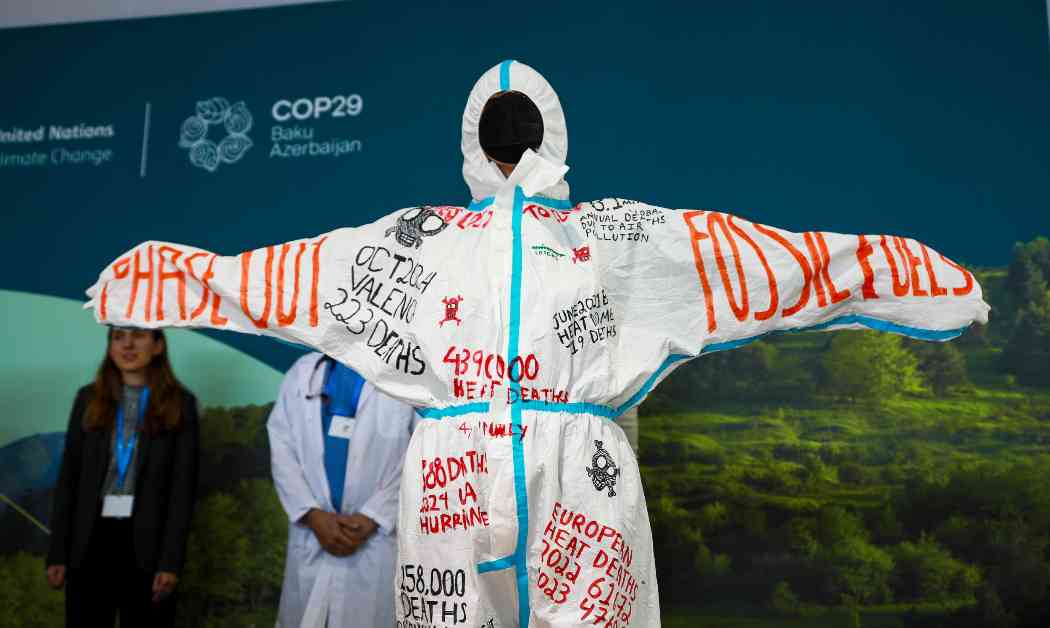Regaining Control of COP: Taking Action Against Major Polluters
After the dust has settled from COP29, a feeling of despondency and betrayal lingers in the air. The climate community is left wondering: are we really surprised by the outcome? For the third consecutive year, a repressive petrostate has hosted the COP, turning the summit into a deal-brokering conference for some of the world’s biggest polluters.
The Murky World of Climate Diplomacy
During COP29 in Baku, Azerbaijan, the fingerprints of the fossil fuel industry were everywhere. An undercover investigation revealed the Azerbaijani COP29 chief executive discussing fossil fuel “investment opportunities” before the conference. The president of Azerbaijan even hailed oil and gas as a “gift from god” while signing new gas deals with other nations. Meanwhile, developing countries were struggling to secure vital climate financing amidst all the chaos.
The Threat of Climate Corruption
The involvement of at least 1,773 fossil fuel lobbyists at COP29 raises concerns about the industry’s influence on the summit. The lack of transparency in disclosing relationships with nominators further muddies the waters. With the rise of climate denialism and a growing distrust in multilateralism, the need to root out fossil fuel influence and conflicts of interest is more critical than ever.
Strengthening Climate Multilateralism
To combat corruption and ensure the integrity of COP, reforming the selection process for host nations is crucial. Stricter criteria should be established to vet potential hosts based on their commitment to climate goals, human rights, and managing conflicts of interest. Transparency measures, such as disclosing affiliations and host deals, can enhance public scrutiny and hold officials accountable for their actions.
Full Disclosure and Accountability
Requiring full disclosure of nominator affiliations and mandating public accessibility to host deals can increase transparency at COP. Implementing a Code of Ethics for host-nation officials to disclose any compromising relationships is essential to prevent cronyism. The approval process for partners should align with UNFCCC standards to avoid conflicts of interest and uphold the summit’s integrity.
Moving Forward
While multilateral climate diplomacy faces challenges, it remains our best chance at meaningful climate action. Structural changes within the UNFCCC and the COP Bureau are necessary to eliminate corruption and ensure that climate summits serve those dedicated to combating climate change. Through transparency, accountability, and reform, COP can regain control and fulfill its mission of addressing the global climate crisis.














